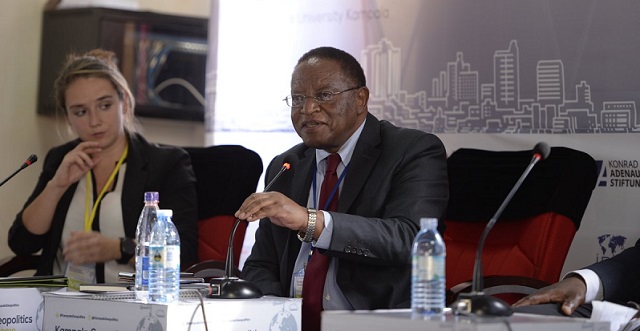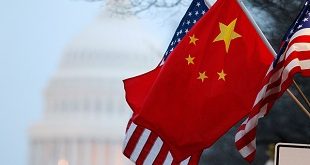
Borrowing defended
Pro government analysts like Morrison Rwakakamba say “I don’t see reason for alarm” regarding the debt burden. He has been making the case for borrowing arguing that if government is doing it for developing in infrastructure, then it is fine. Rwakakamba also cited Uganda having a lower debt to GDP ratio at 49.1% compared to some of its neighbours. He says Kenya stands at 69% while Rwanda is at 60% with Ethiopia at 55%. But what got Rwakakamba real flak was lumping in the US. Its high debt to GDP ratio at a staggering 98% notwithstanding.
Some more rational reactions pointed out that the U.S. has the capacity to buy out its debt by printing more US dollars- a global reserve currency.
Kapwepwe and Rwakakamba agree on the part of borrowing for roads and dams but Kapwepwe departs on the unchecked thirst for loans that sees Uganda inching towards 50% of its debt to GDP ratio. The 50% threshold was set by IMF for low developed countries and says the fact that Uganda is still below the mark “should not be reason for fiscal indiscipline.”
He also argues that Uganda would be comfortable at its 49% debt to GDP ratio if its economic growth rate was 7% in the last five years and also with a similar projection in the next five years. According to IMF, the projected real GDP growth is 6.3%.
The other issue perturbing debt watchers like Kapwepwe is the undisbursed debt which is about Shs16 trillion- loans signed for but remain unutilised. “We are paying commitment and management fees,” he says.
He says this is common with bilateral lenders like China because of their “contingent conditionalities” such as their trucks not paying taxes and the strict use of Chinese contractors.
Former finance minister Ezra Suruma in a previous interview with The Independent said he had found a solution to untamed borrowing and the resultant effects of poor absorption capacity. When I was minister, Suruma told The Independent in 2017, “they (accounting officers and ministers) used to come with loans looking for signatures, I would ask them whether they had read and understood the conditionalities only to find that most of them hadn’t. I would ask them to go back and read and understand and they would say Suruma is slow.”
Suruma said a large number of loans is signed without prior and thorough understanding and negotiations by the borrowers. “As a result,” he said, “officials cannot meet the conditionalities after signing and the lenders cannot disburse.”
Suruma argued that Uganda needed committed and studious officials who can read and understand voluminous documents before they put pen to paper on these mega projects.
“The problem is not that we don’t need the money,” Suruma argued, “we need the money to implement all these development projects but we must get it after understanding the conditionalities behind it.”
Suruma made the comment after the Auditor General reported that the government had failed to use Shs18trillion it borrowed and now it has become a ritual for the Auditor General to report a huge chunk of unused borrowed money.
Suruma seemed like a strict officer and he did not last long in his position. After three years, he was replaced as minister.
Meanwhile the Uganda government’s ambitions mean it cannot wean itself from loans. The tunnel vision on infrastructure as a route for socio-economic development has seen the government come up with project after project with their attendant financing needs. In March, a US$229.5 million (Shs860 billion) financing agreement with the African Development Bank (AfDB) was completed in an effort to raise money for the Kampala-Jinja Expressway.
The debt problem in developing countries took a dramatic twist when Kenyans, tired of the incessant borrowing by their government, petitioned the IMF to cancel a new loan request at the start of April. The IMF was set to extend a $2.3bn loan to Kenya. Kenyans turned up the pressure on Twitter with #StopGivingKenyaLoans and urged citizens to sign an online petition calling for withdrawal of the loan request. Kenyans accused their government of corruption and poor implementation of projects.
To reduce the debt crisis, African Forum and Network on Debt and Development (AFRODAD) a forum that advocates for debt cancellation in Africa, and other civil society organisations are calling for $3trillion debt relief measures.
****
 The Independent Uganda: You get the Truth we Pay the Price
The Independent Uganda: You get the Truth we Pay the Price



